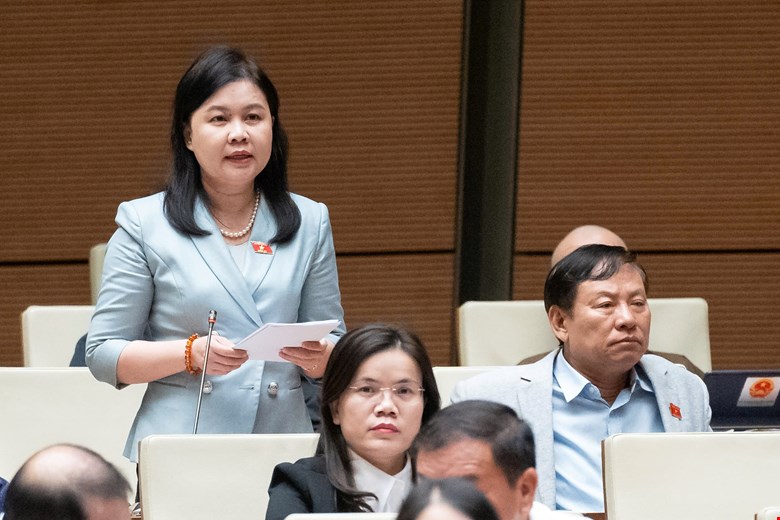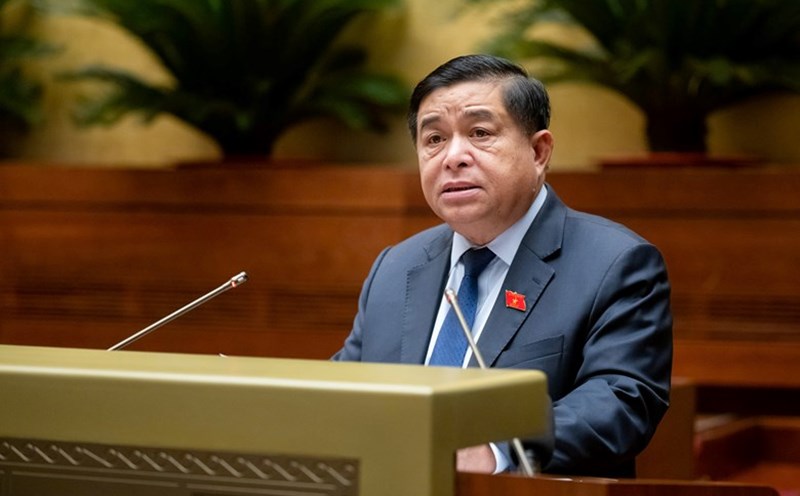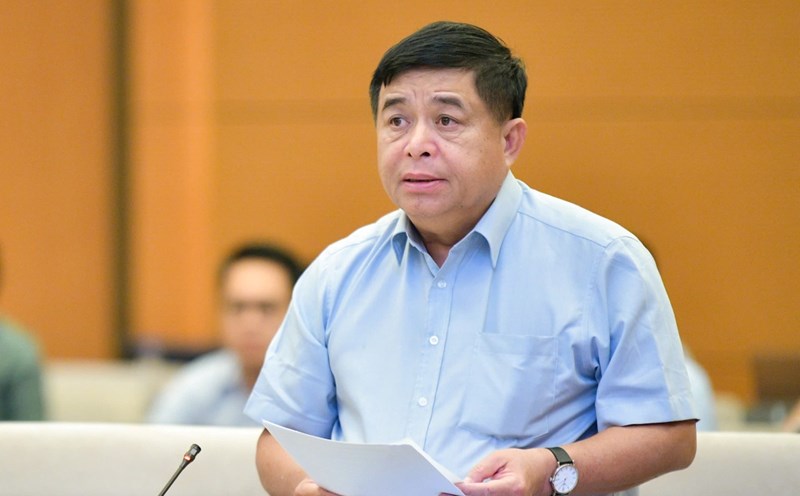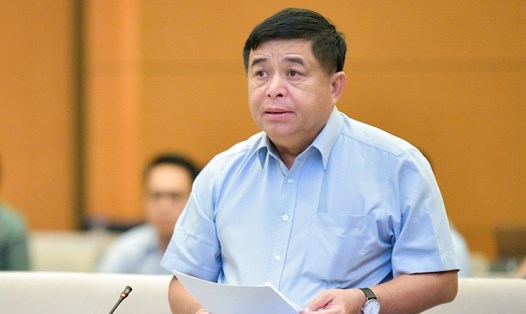Continuing the 8th Session, on the morning of November 6, the National Assembly discussed in the hall the draft Law on Public Investment (amended).
Delegate Nguyen Phuong Thuy (Hanoi Delegation) agreed with the policy and proposed amendments in the draft law related to promoting decentralization and delegation of power.
Along with delegating power to lower-level agencies, especially to localities, to properly implement the policy that General Secretary To Lam and National Assembly Chairman Tran Thanh Man have mentioned many times, "locality decides, locality acts, locality takes responsibility", it is necessary to supplement mechanisms and solutions to ensure the requirements of power control, strengthen inspection, examination and supervision. Increase publicity and transparency in deciding on investment contents as well as enhance accountability of agencies assigned with decision-making authority.

Regarding the authority to decide on investment policies, delegates said that deciding on investment policies and making investment decisions should be assigned to two different agencies to ensure the requirements of monitoring and controlling power.
When the People's Committee requests, the People's Council proactively arranges and schedules meetings as soon as possible to exercise its powers in accordance with the provisions of law, including the Law on Public Investment, without waiting for regular meetings to resolve arising issues.
On the other hand, when this content is brought up for consideration, discussion and decision at the People's Council, the preparation of project documents will have to be more careful, and the process and content of the investment project will have to be public and transparent.
This is also an important condition for agencies and people to monitor the activities of state agencies.
Also talking about this issue, delegate Hoang Van Cuong (Hanoi Delegation) suggested considering decentralizing the authority to decide on investment policies from the People's Council to the Chairman of the People's Committee at the same level.
According to the delegates, People's Councils at all levels hold meetings quite regularly and can hold extraordinary meetings when necessary. Therefore, there is no need to worry about wasting time waiting if it has to be submitted to the People's Council for approval.
However, if submitted to the People's Council, the project must be prepared more carefully and consulted with many relevant agencies, so it will take more time than submitting it directly to the Chairman of the People's Committee for approval.
If the project has to get the opinions of many agencies and departments, it will be evaluated, considered more carefully, and better prepared. It will ensure that the implementation is smooth and brings better results.
Delegates believe that this is necessary because according to international experience, when preparing an investment project, it is always evaluated and prepared very carefully before implementation.
According to the delegate, the approval of the People's Council for investment policy is a mechanism to control power, creating independence between the agency deciding on the investment policy and the person approving the investment project, to avoid the risk of making mistakes and reduce the burden of responsibility for the person approving the project.
In addition, when the National Assembly decides on investment policies, it also decides on specific mechanisms for the project.
Therefore, when People's Councils at all levels decide on investment policies, they will also decide on mechanisms to resolve problems, helping the project to be implemented more smoothly.
From the above analysis, delegates proposed allowing People's Councils at all levels to decide on specific solutions, suitable to local realities and specific requirements of each project.
At the same time, it is stipulated that People's Councils at all levels can authorize People's Committees at the same level to decide on investment policies for projects under their authority to suit the conditions of each locality.











